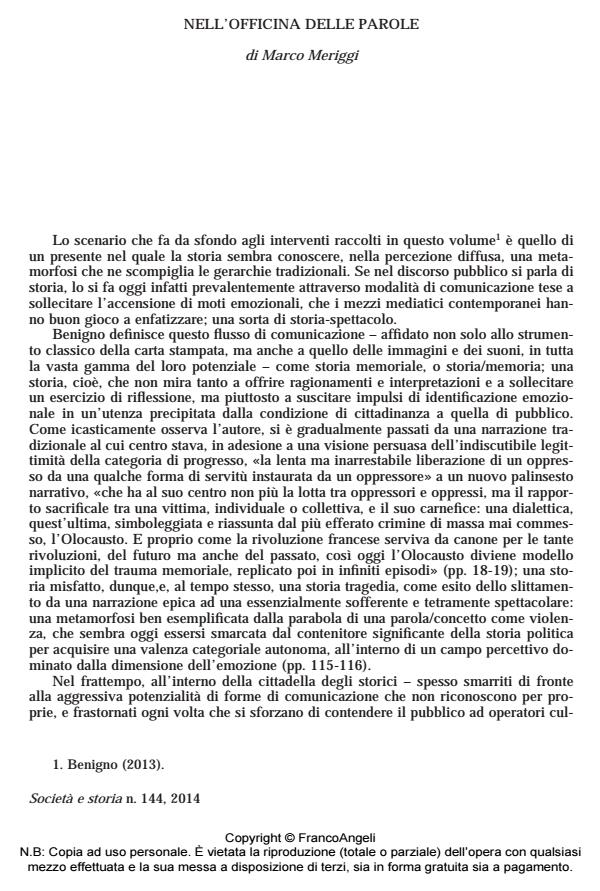Overhauling the meaning of words
Journal title SOCIETÀ E STORIA
Author/s Marco Meriggi
Publishing Year 2014 Issue 2014/144
Language Italian Pages 7 P. 345-351 File size 31 KB
DOI 10.3280/SS2014-144006
DOI is like a bar code for intellectual property: to have more infomation
click here
Below, you can see the article first page
If you want to buy this article in PDF format, you can do it, following the instructions to buy download credits

FrancoAngeli is member of Publishers International Linking Association, Inc (PILA), a not-for-profit association which run the CrossRef service enabling links to and from online scholarly content.
The article offers an overview of the essays collected in Francesco Benigno’s Parole nel tempo and elucidates the peculiarities of its methodology in comparison with the Linguistic Turn and Begriffsgeschichte. Benigno’s reflection seems to the author symptomatic of a deep crisis of the traditional categories which the historical writing has used in] reconstructing. European history. He suggests that a further development of this kind of reflection should not only consider the euristical weakening of some key-words ( for instance: State, Nation, Class, Order, Revolution) which are now subject to criticism, because they don’t any more seem to offer a convincing interpretation of western history, but also take account of the global character of today’s historical writing . The historians should now be able to radically enlarge their mental framework, in order to escape eurocentricity as well as give a convincing description of the new phenomena and spaces they analyse.
Keywords: Historical writing, History of the concepts, global History, Modern Europe.
Marco Meriggi, Nell’officina delle parole in "SOCIETÀ E STORIA " 144/2014, pp 345-351, DOI: 10.3280/SS2014-144006